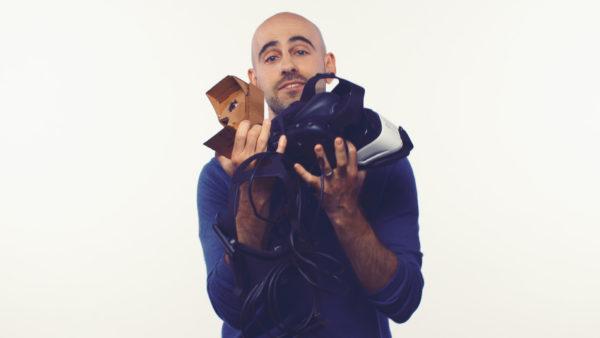Magic Leap, the secretive augmented reality tech startup that’s valued at $4.5 billion (and reportedly bores Beyoncé), settled a sex discrimination lawsuit this week. The plaintiff, Tannen Campbell, a former vice-president of strategic marketing, was hired to make the company’s product more appealing to women. Campbell filed a notice of settlement Monday in federal court in Florida, Magic Leap’s home state, and the terms of the settlement are confidential. (Representatives for both Campbell and Magic Leap said they couldn’t comment.) If all goes smoothly, the suit will officially end by the beginning of next month.
But Magic Leap’s problems won’t. Since the company’s founder, Rony Abovitz, appeared on WIRED’s cover a year ago, Magic Leap has faltered, beleaguered by bad press and allegations of unfulfilled promises. That’s a long way from 2014, when Silicon Valley was all abuzz over the stealthy startup. Google, Chinese e-commerce giant Alibaba, Andreessen Horowitz and other titans of venture capital all rushed to invest in the company and its “mixed reality” software that lets people see virtual 3-D objects superimposed over the real world.
Related Stories
Thanks to Campbell’s lawsuit, a whole new host of questions have arisen, as well as a sinking suspicion that the company is even more dysfunctional than previously thought. Excessive hype is one sign of a company possibly foundering due to mismanagement. Misogyny of the kind alleged by Campbell suggests dysfunction on a whole other level. As incidentsof sexism in techpile up, it’s becoming clear that misogyny in the industry is both a moral travesty and a potential warning sign that a business is in trouble.
Campbell filed the suit in February alleging that Magic Leap fostered a misogynist work environment and then fired her for speaking out about it. Among other things, the suit alleges that Magic Leap executives were dismissive of input from female employees. The suit also claims that employees were told women had trouble with computers. (In a quote that has already gone viral, one IT lead allegedly said, “In IT we have a saying; stay away from the Three Os: Orientals, Old People, and Ovaries.”) In all, the suit alleges, the company cultivated an overall culture utterly inhospitable to women. (The suit describes a game meant to ship with the Magic Leap headset in which a female character is “depicted on her knees groveling at the [male] heroes’ feet” in admiration.)
What’s more, the suit claims Magic Leap did little in an effort to fix its culture when Campbell raised the issue. She alleges that she tried six times to give a presentation about gender diversity in the workplace without success. A “Female Brain Trust Initiative” and a “Women’s Inclusion Network” were eventually formed, but the groups allegedly had no stated goals or support from management and stagnated as a result.
To be clear, the suit’s allegations are just that, and given the settlement, they’ll never likely get a hearing in open court. Magic Leap, for its part, filed a point-by-point response in federal court denying it engaged in any kind of discrimination. But the mere existence of the suit is not a good look in an industry where women typically comprise about 30 percent of a given company’s workforce. Even with many companies overtly seeking to diversify their workforces in recent years, that ratio has stayed about the same, much as it has for the maddeningly dismal figures for hiring people of color in the industry.
All of which is to say the tech industry’s diversity problem doesn’t just affect would-be workers but leaves these homogeneous companies themselves primed for problems. For starters, companies risk unconsciously embedding biases in products meant for everyone. Apple’s HealthKit, launched in 2014, was touted as a comprehensive health tracking system for all humans—but it didn’t include a tracking system for humans with periods until a year later. In July 2015, Google’s new Photos app, which automatically tags pictures using artificially intelligent software, identified an African-American couple as “gorillas.”
But most relevant to the case of Magic Leap are the allegations of misogyny that have embroiled Uber since an ex-employee spoke out frankly about the ingrained culture of sexism she experienced at the company. Susan Fowler’s blog post turned out to be just the first in a series of scandals—from lawsuits over intellectual property to a Department of Justice probe to reports of widespread morale problems—that revealed a company hardly as impervious as its previously invulnerable image suggested.
One easy thing that could help? Discarding the attitude of secrecy so uniformly embedded across the tech industry. At Apple, Facebook, Google, Microsoft, Amazon—and any top tech company, really—the thinking seems to be that saying less publicly lets the company operate faster and more efficiently. But a cult of secrecy can also help perpetuate a destructive company culture. Transparency won’t just help satisfy increasing public demands that these powerful companies face greater accountability. It could save these companies from themselves.



